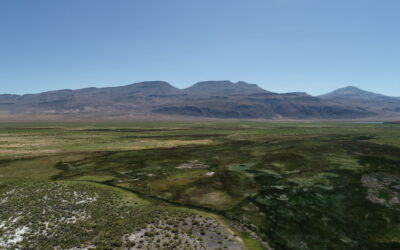WASHINGTON, D.C. –U.S. Senator Jacky Rosen (D-NV) released the following statement applauding the Environmental Protection Agency (EPA) for awarding a grant totaling $544,763 to the Desert Research Institute (DRI) for development, research, implementation, and evaluation of air quality sensors and purifiers to mitigate wildfire smoke risks in northern Nevada.
“In 2020, nearly 60,000 wildfires burned more than 10.3 million acres across the United States. Unfortunately, the current drought and historic temperatures have a crippling effect on western states like Nevada, creating an ideal environment for the spread of wildfires,” said Senator Rosen. “I am glad that the EPA has recognized the smoke hazard that accompanies these increased wildfires, impacting the air quality in rural communities, and putting Nevadans’ health at risk. With this grant, DRI can provide air quality monitors for rural communities and develop educational materials on wildfire smoke risk. Today’s announcement builds upon bipartisan efforts in the Senate to provide Nevadans with the most up-to-date safety measures and resources to protect them from wildfires.”
BACKGROUND: The goal of the project is to increase wildfire smoke risk mitigation in northern Nevada rural communities through the development, implementation, and evaluation of stakeholder-driven monitoring and messaging. Researchers will evaluate the performance of selected portable air quality sensors and place them in three rural Nevada counties to monitor air quality; develop education materials to reduce knowledge gaps in wildfire smoke risk among emergency managers and the public; and evaluate the effectiveness of in air quality monitoring and messaging to mitigate wildfire smoke risk.


